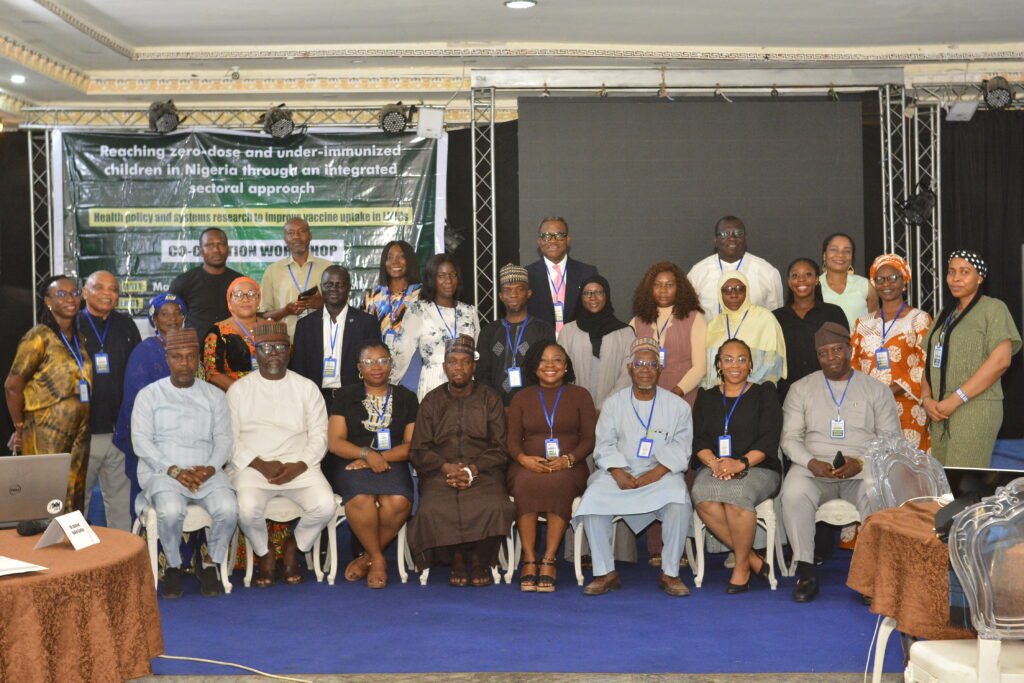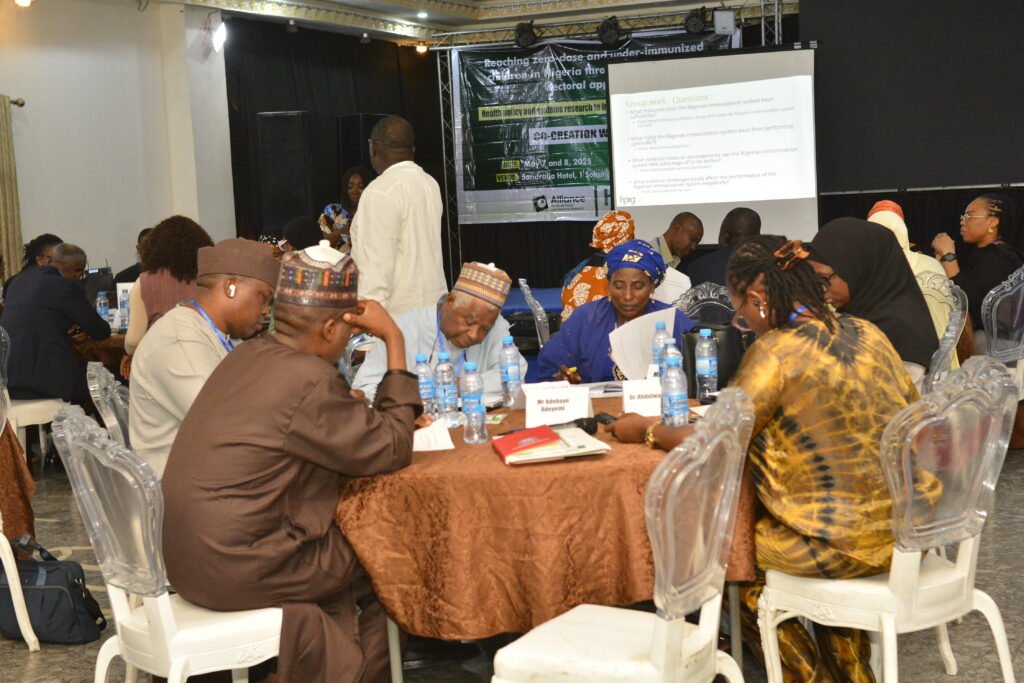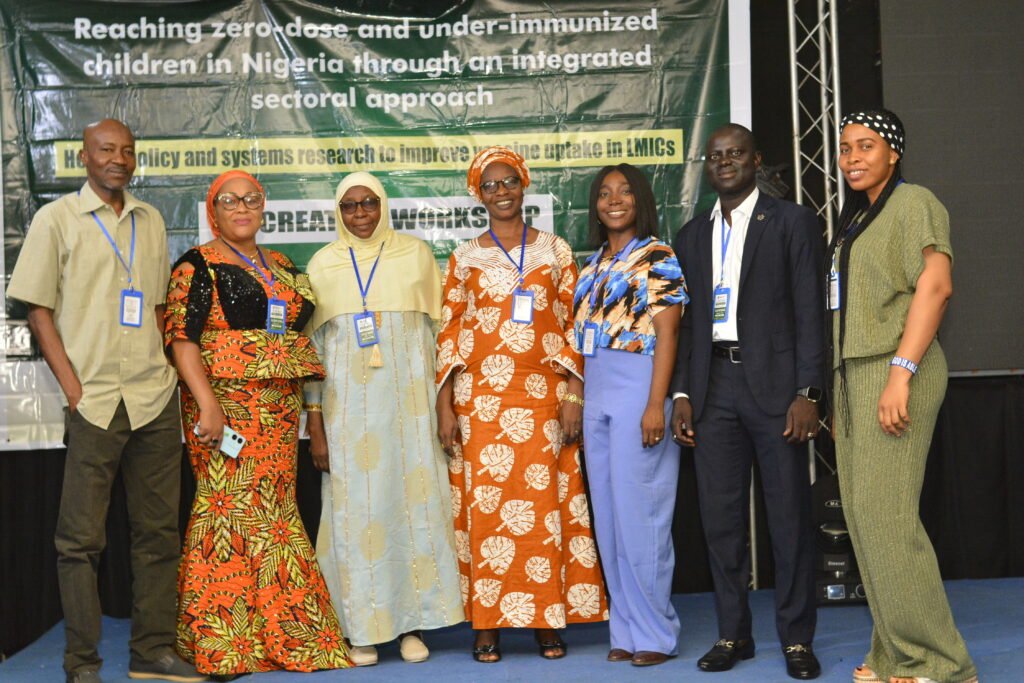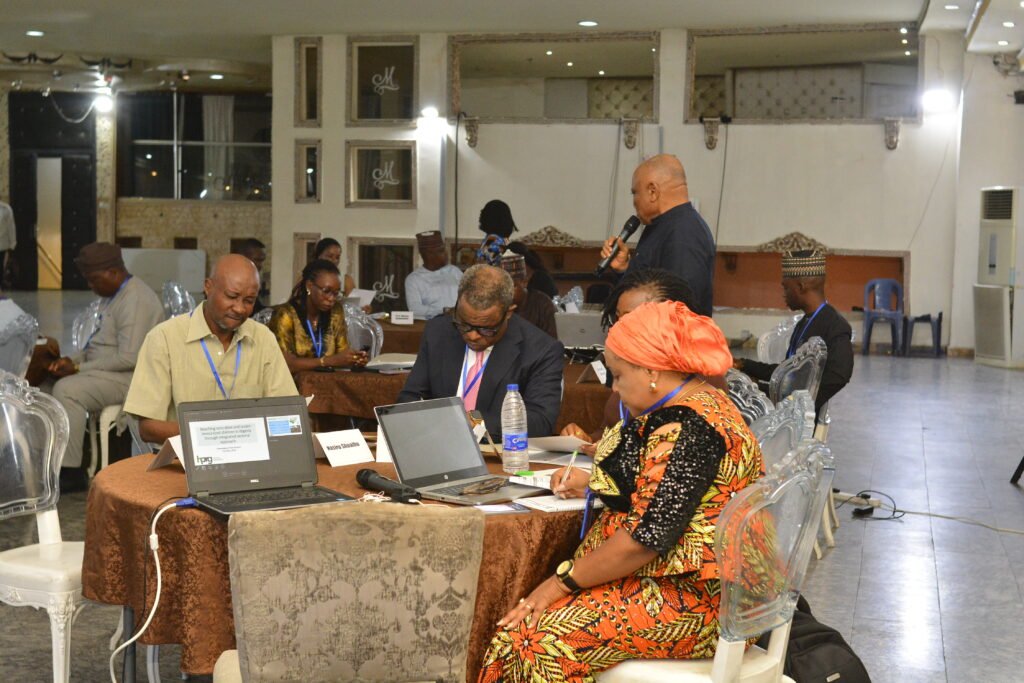“Life or death for a young child too often depends on whether he or she is born in a country where vaccines are available or not” – Nelson Mandela
The World Health Organisation reports that vaccines prevent approximately 5 million childhood deaths each year. Yet Nigeria has over 2 million children who have lived for about 2 years and not received a single dose of vaccine. These children are technically referred to as “zero-dose” and face a high risk of death from diseases like diphtheria, measles, pertussis, polio, hepatitis, and rotavirus. Of the over 800,000 deaths of children under the age of five in Nigeria, it is estimated that about 40% are due to illnesses that vaccines would have prevented.
Closely related to zero-dose children are the under-immunised, who are vaccinated but have missed the most critical vaccines, such as the third dose of diphtheria, tetanus, and pertussis (DTP) vaccines. Similarly, under-immunised children significantly contribute to Nigeria’s high child mortality rates from vaccine-preventable diseases. The question on everyone’s lips is how to ensure that every Nigerian child has unrestricted access to vaccines, effectively shutting the door on zero-dose and under-immunisation.
Several factors contribute to Nigeria’s zero-dose situation, which extends beyond the health sector. For instance, issues related to security, power supply, road infrastructure, superstitions, beliefs, forced displacements, poverty, and the growing population in urban slums all contribute to zero-dose and under-immunisation. These issues cannot be resolved solely by the health sector, even though it is the sector responsible for administering the vaccines. This indicates that collaboration among diverse sectors is essential to find a solution. However, there needs to be a clear understanding of how this collaboration can be initiated, managed, and sustained within the context of Nigeria.
The Health Policy Research Group based at the University of Nigeria (HPRG) is on a two-year project that will pull diverse sectors together to address Nigeria’s zero-dose and under-immunisation issues. With funding support from the Alliance for Health Policy and Systems Research, HPRG will work closely with stakeholders such as the Nigerian Governors Forum, Ministry of Education, Ministry of Innovation, Science and Technology, Association of Local Governments of Nigeria (ALGON), Civil Society Organizations, National Primary Health Care Development Agency among others, to achieve the central aim of the project, which is to understand the Nigerian immunisation system and test a multi-sectoral intervention to improve vaccination coverage in Nigeria.
Our Approach
Our project implements a four-phase strategy:
(1) Review pertinent documents and engage with key decision-makers involved in nationwide vaccination to identify the gaps that have allowed zero-dose cases to persist and to explore the nature of collaborations across sectors addressing this problem.
(2) Use case studies, interviews, and group discussions to pinpoint specific local issues contributing to zero-dose persistence across Nigeria’s six geopolitical zones.
(3) Create a comprehensive causal loop diagram for the Nigerian immunisation system, highlighting root causes that have sustained the zero-dose problem, while collaborating with diverse stakeholders to develop a multi-sectoral intervention that targets the identified causes.
(4) Launch a pilot intervention in select locations.
As an organisation committed to inclusion, we will attentively consider concerns regarding gender, intersectionality, and disability that arise from the study. We firmly believe that the outcomes of this study will assist Nigeria in achieving its goal of reducing zero-dose cases by 80% by the end of 2028.
Research Team
- Prof. Chinyere Mbachu – Principal investigator
- Prof. Obinna Onwujekwe – Co-investigator
- Prof. Benjamin S. C Uzochukwu
- Prof. Nkoli Ezumah
- Ass Prof. Enyi Etiaba
- Dr. Prince Agwu – Research Comms/Uptake Lead
- Dr. AbdulMuminu Isah
- Ifunanya Agu
- Ezinwannne Ugochukwu
- Dr. Kachy Ugwa
- Dr. Eunice Enabulele
- Dr. Emeka Aneke
- Chinonye Ezue
- Oluchukwu Ezechukwu
- Ihuoma Obi-Obasi
- Dr. Chinazom Ekwueme – Project manager
Pictures





